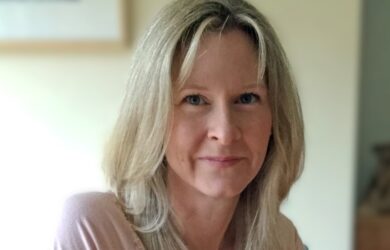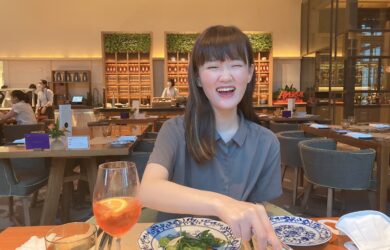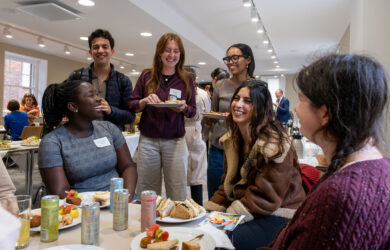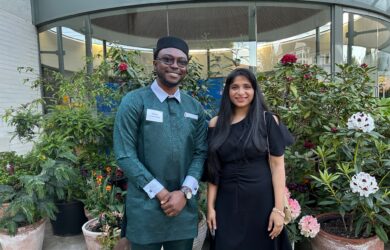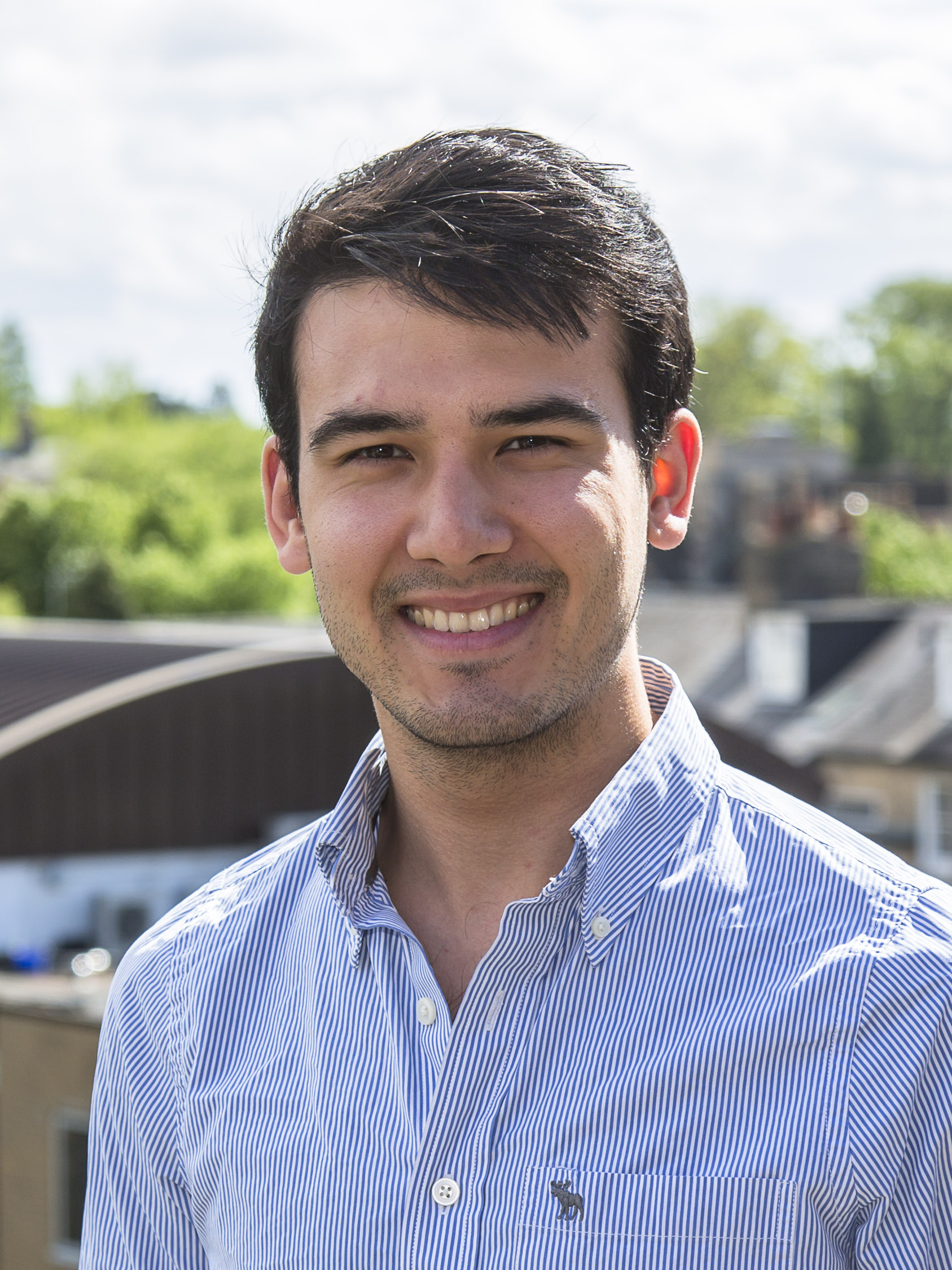
Derrick Roberts talks about his research on molecular self-assembly.
Most of the fundamental research in self-assembly is guided by one central idea: if you can control the structure of a molecule, you can control its function.
Derrick Roberts
Derrick Roberts has just published his fourth paper linked to his PhD and is already looking forward to the next one.
Derrick [2012], who is undertaking a PhD in Chemistry, recently published a research article in the Journal of the American Chemical Society on the post-assembly modification of a new family of self-assembled cage molecules. This paper is part of his ongoing work on self-assembled molecular containers and their uses in nanotechnology. Derrick, who had published several papers even by the time he finished his undergraduate degree, is supervised by Professor Jonathan Nitschke in the Department of Chemistry.
Derrick’s research goals, however, extend beyond his current work in fundamental molecular self-assembly. He says: “There is a potentially huge market for combining molecular self-assembly and polymer chemistry to develop new ‘smart’ plastics that can fold into protein-like structures, which could form the basis of highly efficient solar cells or make replacement parts for damaged cellular machinery. Scientists still have a lot to learn about how to control the folding and self-assembly processes of synthetic polymers. Most of the fundamental research in self-assembly is guided by one central idea: if you can control the structure of a molecule, you can control its function.” As part of his PhD research programme, Derrick is taking part in a £500K EPSRC-funded project to investigate synthetic protein-like molecules for better understanding cystic fibrosis, and potentially develop a treatment regime for this devastating disease.
In recognition of his contributions to research, Derrick recently won second place in the 2015 Association of British Turkish Academics Doctoral Researcher Awards. From over 156 research proposals submitted by PhD students from over 49 universities throughout the UK, Derrick was selected as one of the five finalists in the Natural and Physical Sciences category. Finalists were invited to present a seminar on their research projects, from which the awardees were chosen.
Science experiments
Derrick’s interest in chemical experimentation started at an early age. He was born in Singapore in 1988, and his family moved to Sydney, Australia, when he was two. As a child he recalls his father, a businessman, taking him to science museums almost every weekend for several years. “I could never get enough of science when I was very young,” Derrick says. “I only wanted science toys and chemistry sets. One time, when I was about six years old, Dad even got his office to make up some little business cards printed with ‘Professor Derrick Roberts’ on them.” His mother allowed him to do science experiments in their kitchen, using household ingredients like vinegar and baking soda. But he was banned from the kitchen when his grandmother, visiting from Singapore, mistook one of his “science experiments” (a glass of vinegar) for water. Fortunately, Derrick’s father continued to support his passion for science by converting his home office into a makeshift laboratory.
In high school, Derrick’s teachers fostered his enthusiasm for science by mentoring him in advanced topics outside of school hours. In year 10 (2004) he took part in the BHP Billiton National Science Awards, where he won the national Chemistry and Biochemistry award for his research project investigating the efficacy of certain dietary supplements. He also developed an interest in solar engineering and took part in the Australian-International Model Solar Challenge competitions. However, by the end of high school he had decided to pursue studies in medicine and had already begun volunteering at his local hospital.
Derrick started a Bachelor of Science at the University of Sydney as a pre-med course for its graduate medicine programme. His university entrance examinations, which placed him in the top 1% of applicants, qualified him for the undergraduate Talented Student Program (TSP). This scheme allowed him to skip some of his lecture courses and instead join research groups as a junior researcher. Through the TSP, Derrick worked with teams investigating new solar cell designs, industrial catalysis and lasers designed to probe the chemical composition of outer space. “It was a great learning experience working on blue skies research,” he says. “It was as much about what doesn’t work. You learn a lot from that.”
It was his experiences in the TSP that helped Derrick to rediscover his passion for scientific research, leading him to undertake the optional Honours research year. His research focused on improving the efficiency of silicon cells using fluorescent thin films. For his Honours research project, Derrick was awarded first class honours and the University Medal.
Cambridge
After completing his undergraduate degree, Derrick was approached by a professor at Sydney University to undertake a PhD in polymer chemistry. However, eight months into his PhD programme, he realised he had missed a rare opportunity to study abroad and have a more internationalised focus to his study. One of his academic mentors – a graduate of Churchill College – suggested that Cambridge University would be an ideal environment for taking his scientific education to the next level. “There were people at Cambridge working in areas on the cutting-edge of research in self-assembly. These were the kinds of blue skies projects I was really interested in and Sydney University wasn’t really focusing on this. I wanted to be with like-minded people and to have the freedom to explore different ideas. It was a risk at the time, but I love what I do,” he says. He transferred his PhD at Sydney to an MSc so he could finish early and moved to Cambridge to commence his current PhD studies.
In addition to his research, Derrick also supervises undergraduate chemistry students and engages in public outreach to promote science education and research – both activities that he has done since his undergraduate days. He fences for the Cambridge University Blues Fencing Team and has served on Gates Cambridge Scholars Council. He plans to continue his research career on completing his PhD.








